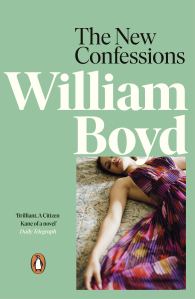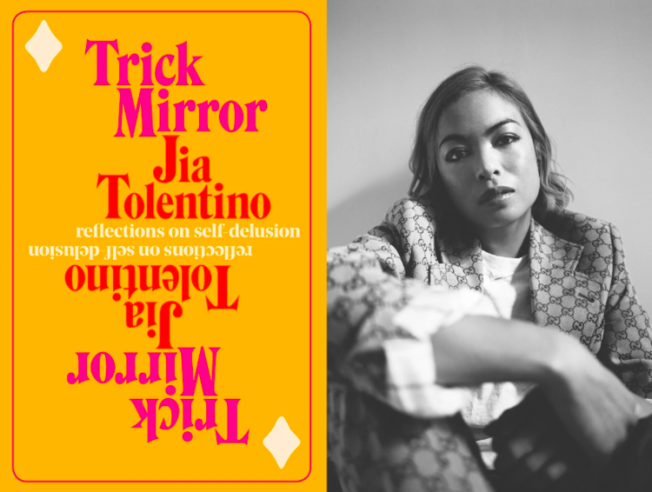 The New Confessions is an expansive, rambling novel; it’s a style which William Boyd later perfects in Any Human Heart. Boyd focuses on a fairly ordinary, impulsive and impulsively romantic Scotsman named John James Todd, born in 1899 in Edinburgh and as old as the 20th century itself. Todd’s mother dies during childbirth, and his early life is set in the end of the Victorian era where Todd’s fairly wealthy family life boils down to Oonagh, the child minder, a working class Celt from Musselburgh with a family of her own, and the distant – almost absent – figures of his father and older brother.
The New Confessions is an expansive, rambling novel; it’s a style which William Boyd later perfects in Any Human Heart. Boyd focuses on a fairly ordinary, impulsive and impulsively romantic Scotsman named John James Todd, born in 1899 in Edinburgh and as old as the 20th century itself. Todd’s mother dies during childbirth, and his early life is set in the end of the Victorian era where Todd’s fairly wealthy family life boils down to Oonagh, the child minder, a working class Celt from Musselburgh with a family of her own, and the distant – almost absent – figures of his father and older brother.
Boyd is a master of character, and his descriptions of place paired with his ambition to take you along to the most far-flung yet specific situations made every ‘chapter’ of Todd’s life equally engrossing and compelling. Boyd has a particular interest in how private life – especially fairly ordinary ones – are impacted by public events, so situates the development of Todd’s life around the World Wars in particular. The style is a kind of fictional autobiography, and the principles that Todd prescribes to are that the course of ones’ life is driven by chance and circumstance, not fate or will. There are parallels between Todd’s life and Rousseau’s to an extent, and the title is drawn from Rousseau’s Confessions, which Todd is exposed to at a critical point in his life. The parallels can easily be over-drawn, and I think are more representative of Todd’s artistic obsession with Rousseau rather than a genuine congruence of the two men’s lives.
Todd’s life is defined by film (still, silent, moving, colour, Westerns), his obsessive pursuit of the epic, as well as his lifelong obsession with an actress brought into his life through film making. He wanders from city to city – through Berlin, Edinburgh, London, San Diego, Tecate, the Mediterranean – and at times the serendipity of major historical events feel shoe-horned into his story.
Described as a ‘ribald’ autobiography, I think the New Confessions misses the grace and lucidity of Any Human Heart, but Boyd’s mastery of character, place and atmosphere made this a great escape at the start of social distancing and lock down restrictions.
 I enjoyed so many aspects of this book, but more than anything else, the central character. Janina (but don’t you dare call her that) Duszejko is an older (elderly?), single woman living outside a rural Polish village near the Czech border, generally populated in the warmer summer months with the exception of a handful of neighbors. Her perspective is the overriding narrative voice throughout the story, and she leads a no-nonsense life of self-sufficiency with small flashes of joy in the form of William Blake poetry, astrology, communion with wild animals, clean feet, Durian fruit, mustard soup, and the company of some of her favorite people: Dizzy, Good News, and (somewhat reluctantly) Oddball. Things of importance are treated with notable respect; she signals this by making common nouns proper: Animals, Sun, Birds, Dog, Dusk, Soul, Horoscope, Dread. She finds a nickname for everyone, mostly understood just by her, and nurtures largely unpopular theories surrounding the mysterious deaths and perhaps murders that continue to happen in the area. While this is billed as a murder mystery, the deaths are almost peripheral.
I enjoyed so many aspects of this book, but more than anything else, the central character. Janina (but don’t you dare call her that) Duszejko is an older (elderly?), single woman living outside a rural Polish village near the Czech border, generally populated in the warmer summer months with the exception of a handful of neighbors. Her perspective is the overriding narrative voice throughout the story, and she leads a no-nonsense life of self-sufficiency with small flashes of joy in the form of William Blake poetry, astrology, communion with wild animals, clean feet, Durian fruit, mustard soup, and the company of some of her favorite people: Dizzy, Good News, and (somewhat reluctantly) Oddball. Things of importance are treated with notable respect; she signals this by making common nouns proper: Animals, Sun, Birds, Dog, Dusk, Soul, Horoscope, Dread. She finds a nickname for everyone, mostly understood just by her, and nurtures largely unpopular theories surrounding the mysterious deaths and perhaps murders that continue to happen in the area. While this is billed as a murder mystery, the deaths are almost peripheral.
 I don’t think I’ve enjoyed a collection of essays as much since Susan Sontag’s ‘Against Interpretation.’ Jia Tolentino is from my generation though, and her writing has been relentlessly honed through the ever-present feedback loop of the internet (formerly the deputy editor for Jezebel, contributor to Hairpin and Gawker, and now a staff writer for the New Yorker). In this collection of essays, Tolentino has more space to extrapolate and extend some previously published work in nine playful, persuasive, meticulously researched essays. With the exception of about two, I found them to be consistently incisive, elegantly developed, and often wickedly funny.
I don’t think I’ve enjoyed a collection of essays as much since Susan Sontag’s ‘Against Interpretation.’ Jia Tolentino is from my generation though, and her writing has been relentlessly honed through the ever-present feedback loop of the internet (formerly the deputy editor for Jezebel, contributor to Hairpin and Gawker, and now a staff writer for the New Yorker). In this collection of essays, Tolentino has more space to extrapolate and extend some previously published work in nine playful, persuasive, meticulously researched essays. With the exception of about two, I found them to be consistently incisive, elegantly developed, and often wickedly funny.